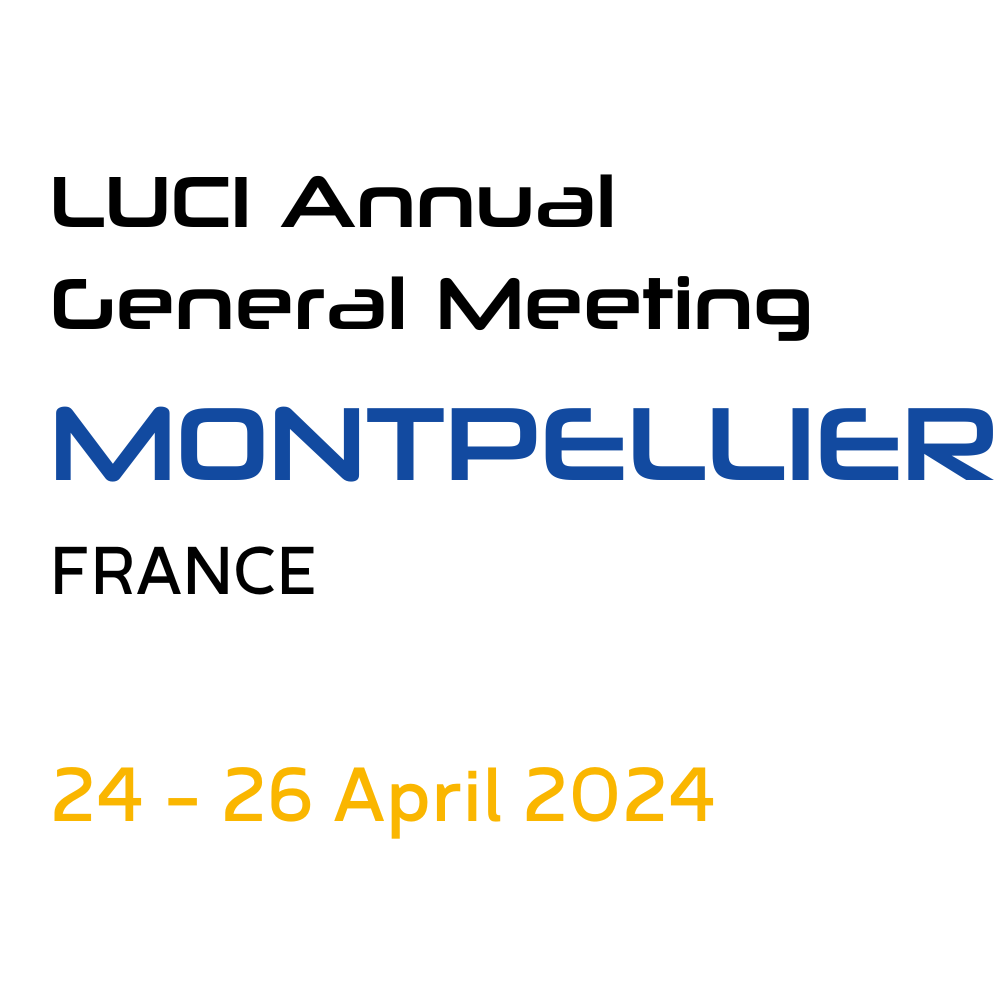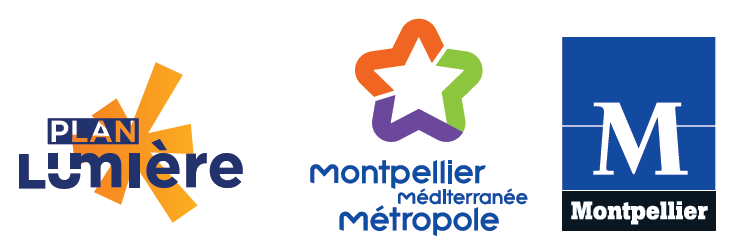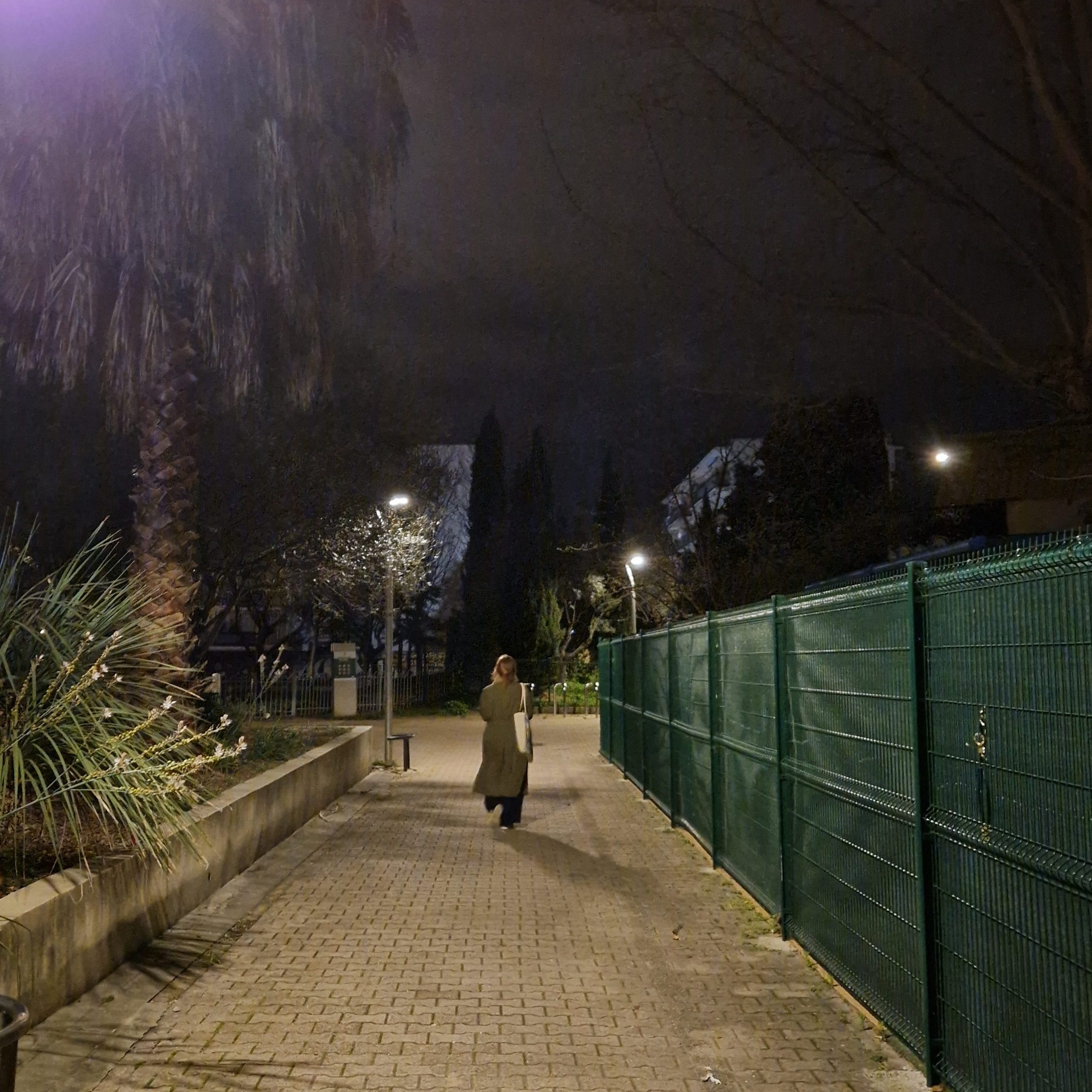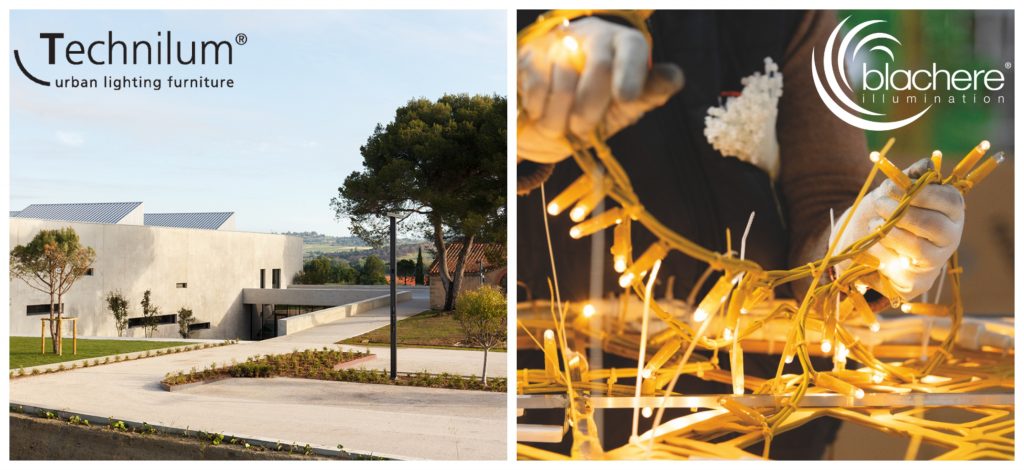Programme
Live Interpretation: https://app.interprefy.com/loginlink?token=LAGM2024
Wednesday 24 April 2024
📍Venue: Maison des relations internationales Nelson Mandela (MRI) (14 Dsc en Barrat, 34000 Montpellier)
10:00 – 14:00 | Executive Committee lunch & meeting (LUCI EC members only)
14:00 – 14:30 | Registrations for Working Group participants
📍Venue: Reception (ground floor) of the MRI
14:30 – 16:00 | Light Pollution Working Group meeting (LUCI members only)
📍Venue: Salle de reception (ground floor) of the MRI
16:00 – 16:30 | Registrations & Coffee Break
📍Venue: Reception (ground floor) of the MRI
16:30 – 18:00 | Lighting Masterplan Working Group meeting (LUCI members only)
📍Venue: Salle de reception (ground floor) of the MRI
18:00-19:30 | Free time
19:15-23:00 | Dinner and Night & Light visit of Murviel-lès-Montpellier
📍Meet at 19:15 in front of the Maison des relations internationales Nelson Mandela (MRI)
Experience light and dark in the company of poetry, music and astronomy. Includes dinner and a short hike with lanterns. Planned return to the hotel at 23:30.
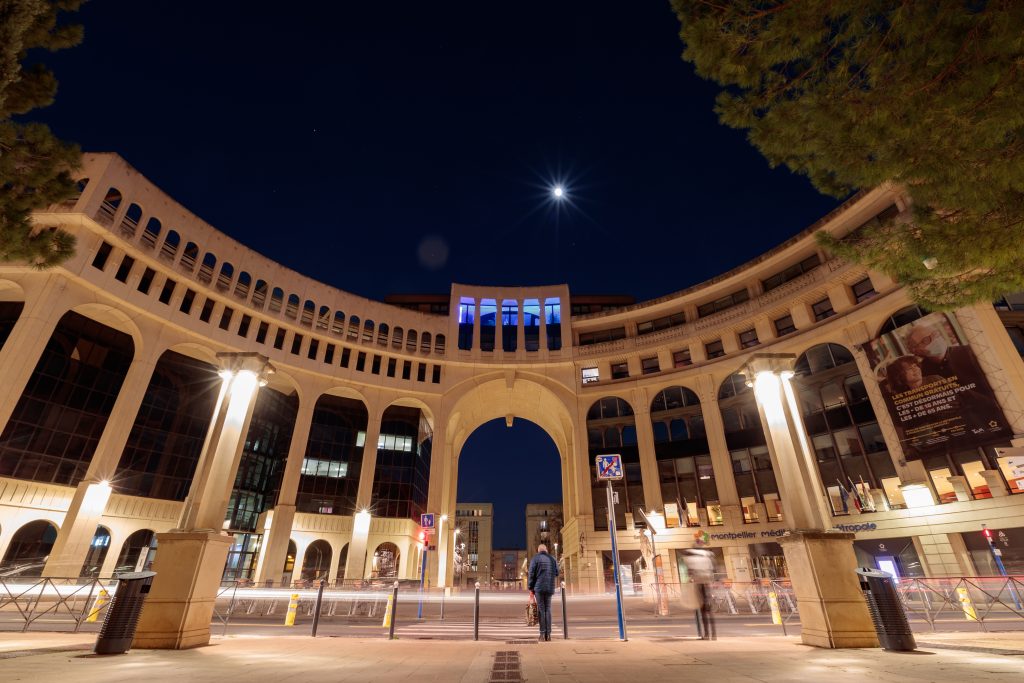
Thursday 25 April 2024
📍 Venue for the morning programme: Musée Fabre (39 Bd Bonne Nouvelle, 34000 Montpellier)
08:45-09:30 | Registrations & Coffee
📍 Courtyard of the Musée Fabre
09:30-11:30 | LUCI General Assembly (for LUCI members only)
📍 Auditorium of the Musée Fabre
11:30-12:15 | Transfer to lunch & afternoon venue
Either on foot (29 minutes) or by tram (17 minutes) – tickets are available to purchase after downloading the M’Ticket app
📍 Venue for the lunch and afternoon programme: Hôtel de Ville Montpellier (1 Pl. Georges Frêche, 34000 Montpellier)
12:15-14:00 | Lunch / Registration for non-members; Group photo
📍 Terrace of the Salle du Conseil, Hôtel de Ville Montpellier (1 Pl. Georges Frêche, 34000 Montpellier)
14:00-14:30 | Official opening of the AGM
📍 Salle du Conseil, Hôtel de Ville Montpellier
Welcome by LUCI President and the Mayor/President of Montpellier Mediterranean Metropolis.
14:30-16:00 | The past, present and future of public lighting of Montpellier Mediterranean Metropolis
– Damien Guiraudie, Lighting Strategy Manager, Montpellier Mediterranean Metropolis
– Philippe Clavel, Territorial Development Engineer, Montpellier Mediterranean Metropolis
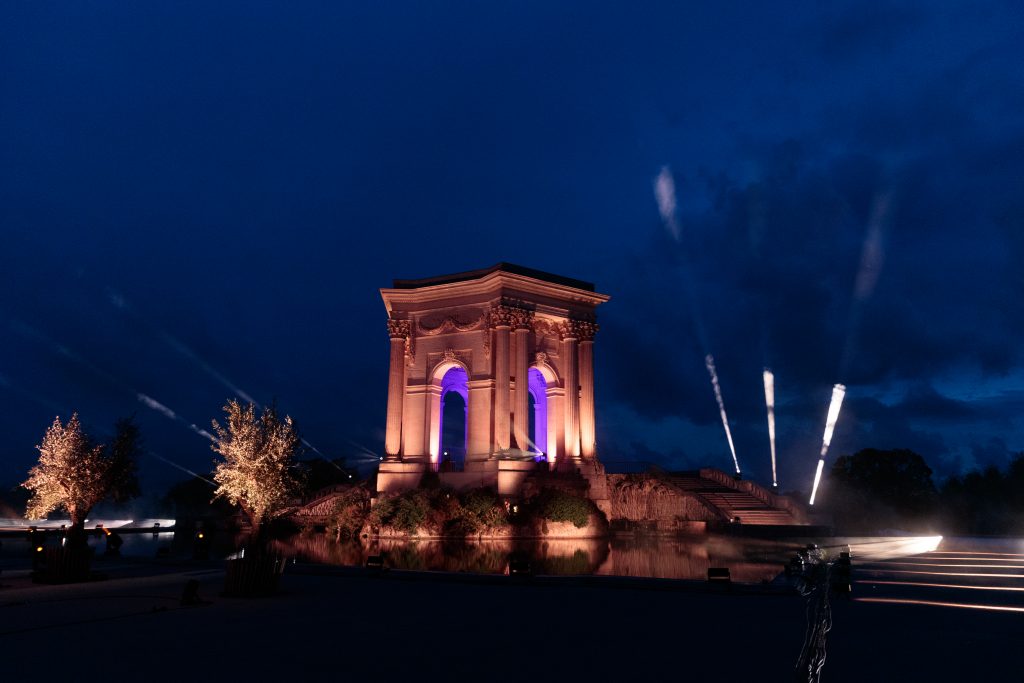
After an introductory presentation on the development of lighting in Montpellier, this session will focus on the lighting assets that the Metropolis manages on a day-to-day basis, the choices it has made to date, and its future prospects. The Lighting Plan outlines the strategy that has been developed and how it will be implemented over the next few years, with a view to considering the many issues surrounding lighting in relation to society and the environment.
Come and discover why “a new night is beginning” in Montpellier.
16:00-17:30 | Research projects and partnerships with Montpellier Mediterranean Metropolis
Planning sustainable lighting for biodiversity and society
– Sarah Potin (Project Manager) and Léa Tardieu (PhD researcher), La Telescop / INRAE
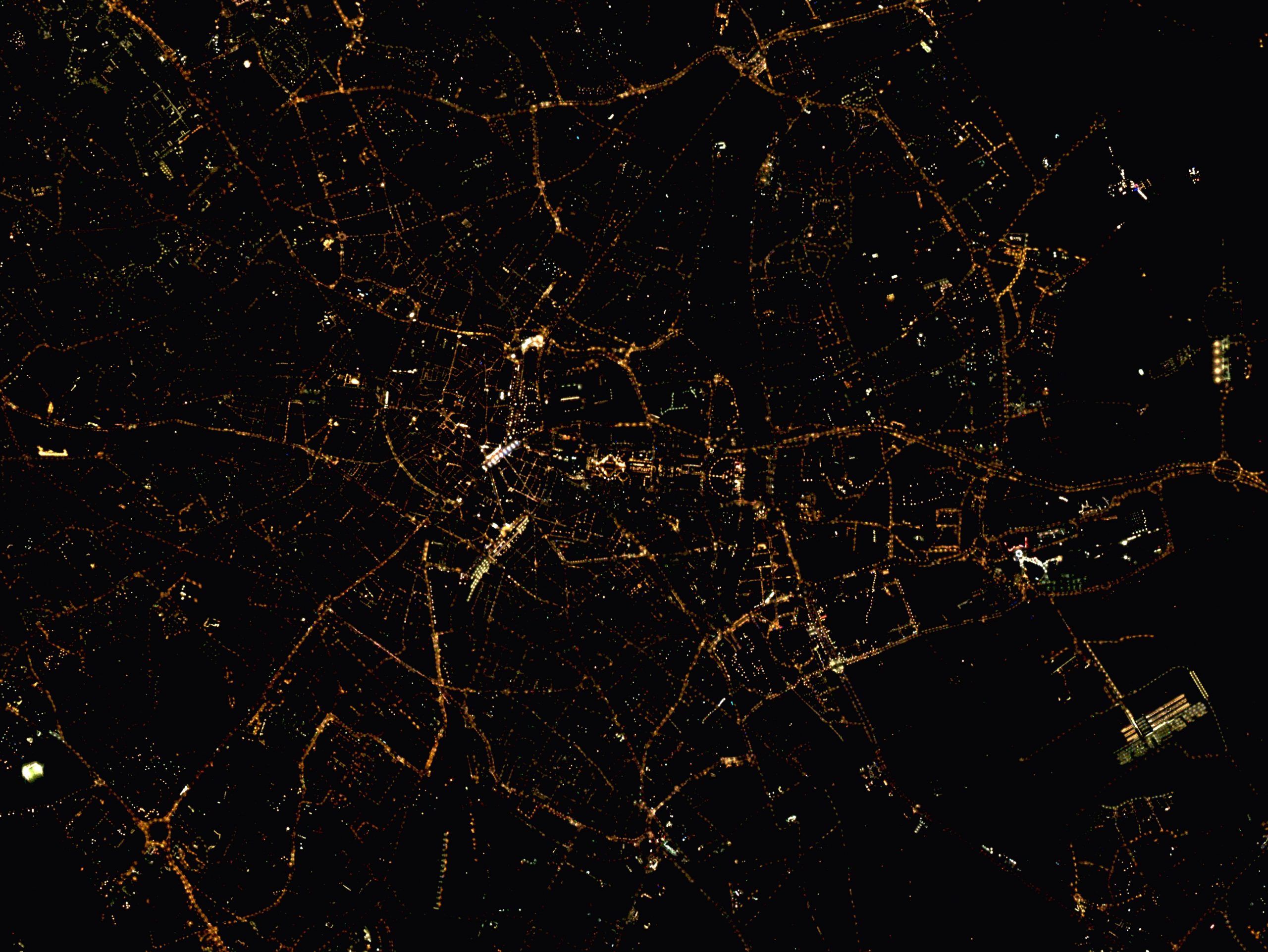
Artificial light at night has various adverse effects on the environment, human health, energy consumption, and astronomical observations, which are now well-documented. It is therefore a pressing necessity to implement measures that significantly reduce light pollution. However, striking the right balance between preserving darkness for conservation purposes and meeting human needs for lights at night, poses a significant challenge for stakeholders in urban settings.
We propose a spatial analysis that enables to find the best adjustments for biodiversity and societal needs at the scale of each individual light point. By using satellite imagery and ecological modelling, we identify nocturnal ecological networks for several species, while surveying helps us gauge residents’ acceptability to different measures regarding public lighting.
We undertake this analysis within the Montpellier Metropolitan Area and provide spatialized recommendations to decision-makers for effective and socially acceptable mitigation measures into its lighting plan.
ALAN reduction strategy: A study on pedestrian lighting in Montpellier
– Céline Villa, Researcher, Gustave Eiffel Paris University
The LUNNE project, funded by the ANR (Agence Nationale de la Recherche, FR), addresses several scientific challenges associated with the reduction of ALAN (Artificial Light at Night). 1) A more appropriate quantification of the impact of ALAN reduction strategies on ecosystems, through the development of new indicators at different spatial scales; 2) A better knowledge and quantification of the impact of these strategies on people (mobility, safety, nightlife); 3) A better understanding of the obstacles and levers to the acceptability of these urban lighting policies. In this context, the reduction of illuminance levels has been investigated in a pedestrian area in Montpellier, taking into account socio-demographics variables (age, gender, familiarity). For that purpose, a survey was conducted based on the state of the art of lighting quality criteria. The first results will be discussed, together with application perspectives for collectivities such as Montpellier.
The International Dark Sky Reserve and neighboring metropolises
– Richard Scherrer, Territorial delegate and Project manager, Cévennes National Park IDSR
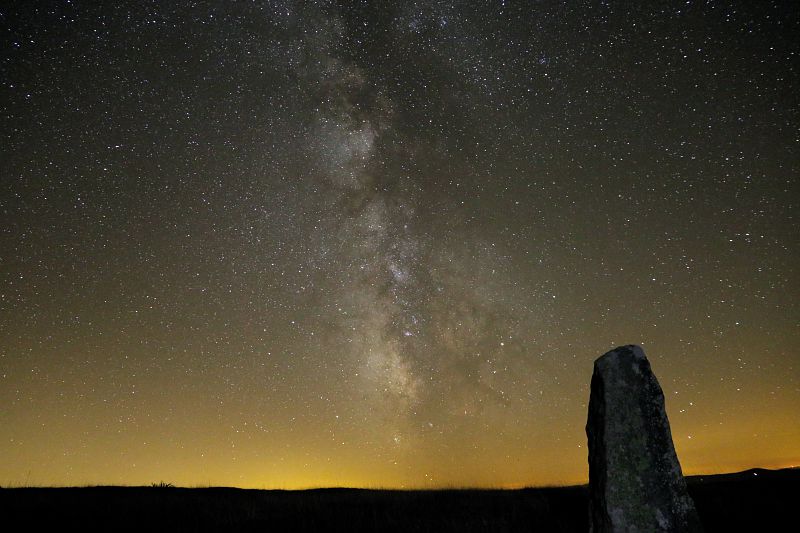
The International Dark Sky Reserve was set up in 2018, at the initiative of the Cévennes National Park, after obtaining this label awarded by the International Dark Sky Association. This label has made it possible to initiate a dynamic at several levels in the territory in partnership with energy unions and municipalities or urban areas managing lighting. The actions carried out firstly made it possible to renovate the public lighting system to limit light pollution and therefore the financial impact for the municipalities and the ecological impact for biodiversity. Secondly, actions were carried out on the astro-tourism aspect or raising awareness about the night and astronomy. More broadly, work is underway with towns and cities close to the International Dark Sky Reserve, including Montpellier, to limit the impact of light pollution in these metropolises, and to collaborate with public and private stakeholders.
Presentations are followed by a moderated group discussion and Q&A with the audience.
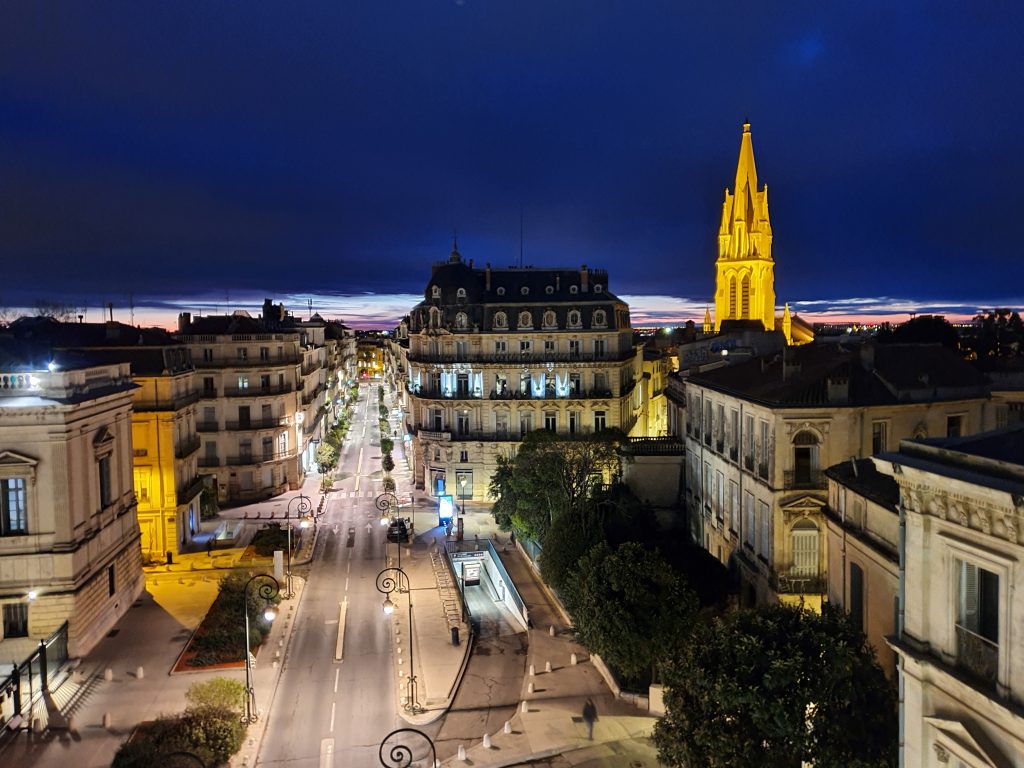
17:30-17:45 | Closing of the day
17:45-19:30 | Free time
19:30-21:00 | Dinner
📍Venue: Garden of the Maison des relations internationales Nelson Mandela (14 Dsc en Barrat, 34000 Montpellier)
21:00-23:00 | Night Visit: Montpellier city centre
During this 2-hour walking tour, you’ll discover Montpellier’s old town, steeped in medieval urban planning, and discover some of the city’s main attractions in terms of light, with two dominant locations, as close as possible to the stars…
Friday 26 April 2024
📍 Venue: Hôtel de Ville Montpellier (1 Pl. Georges Frêche, 34000 Montpellier)
08:30-09:00 | Registrations & Coffee
📍 Terrace of the Salle du Conseil, Hôtel de Ville Montpellier (1 Pl. Georges Frêche, 34000 Montpellier)
09:00-09:05 | Opening of the day
📍 Salle du Conseil, Hôtel de Ville Montpellier
09:05-09:45 | Keynote
Illuminating darkness: Unveiling the ultimate light show by reclaiming the night
– Ruskin Hartley, CEO, DarkSky International
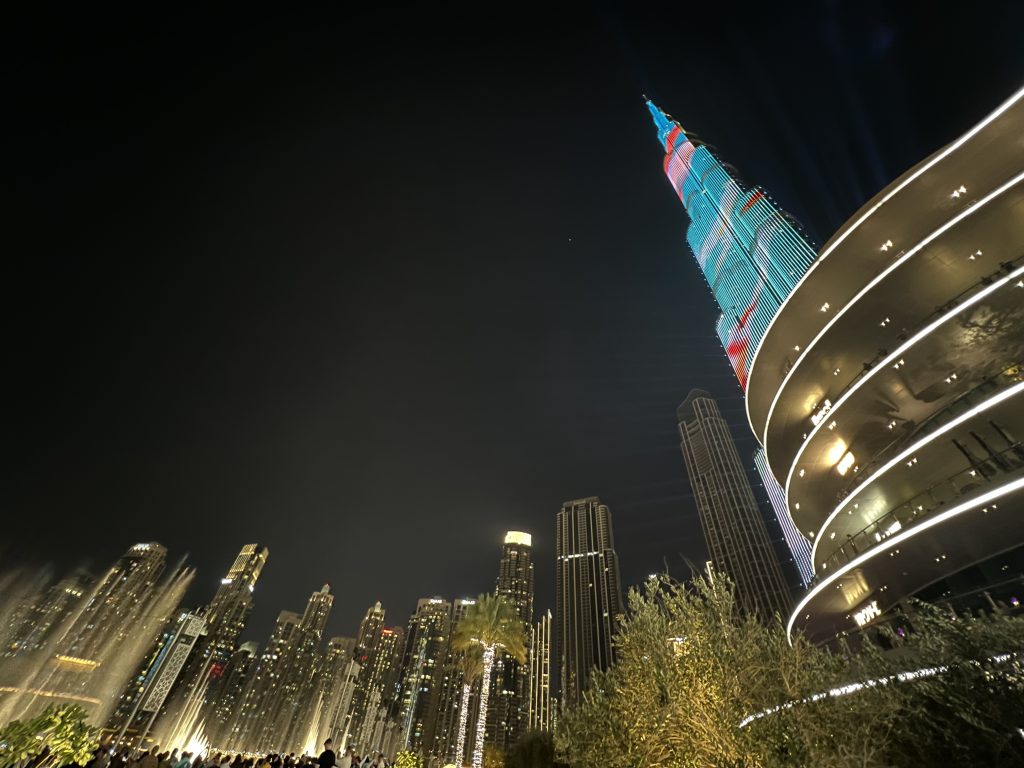
In 1994, Los Angeles experienced a massive earthquake that led to a significant blackout, revealing the Milky Way to many for the first time in years due to reduced light pollution. This blackout highlighted how urban brightness has obscured the stars, a problem that has only worsened, affecting ecosystems, wasting energy, and impacting health. Thirty years on, the challenge of mitigating light pollution is more crucial than ever. This talk discusses the detrimental effects of excessive artificial light and the importance of preserving the night sky. It proposes that with modern lighting technology and thoughtful design, we can enjoy well-lit cities without sacrificing our view of the universe. The discussion emphasises the potential for cities to spearhead the dark sky movement, outlining actionable steps towards reducing light pollution and enhancing the appreciation for natural darkness, thereby reconnecting future generations with the stars.
Followed by a moderated Q&A.
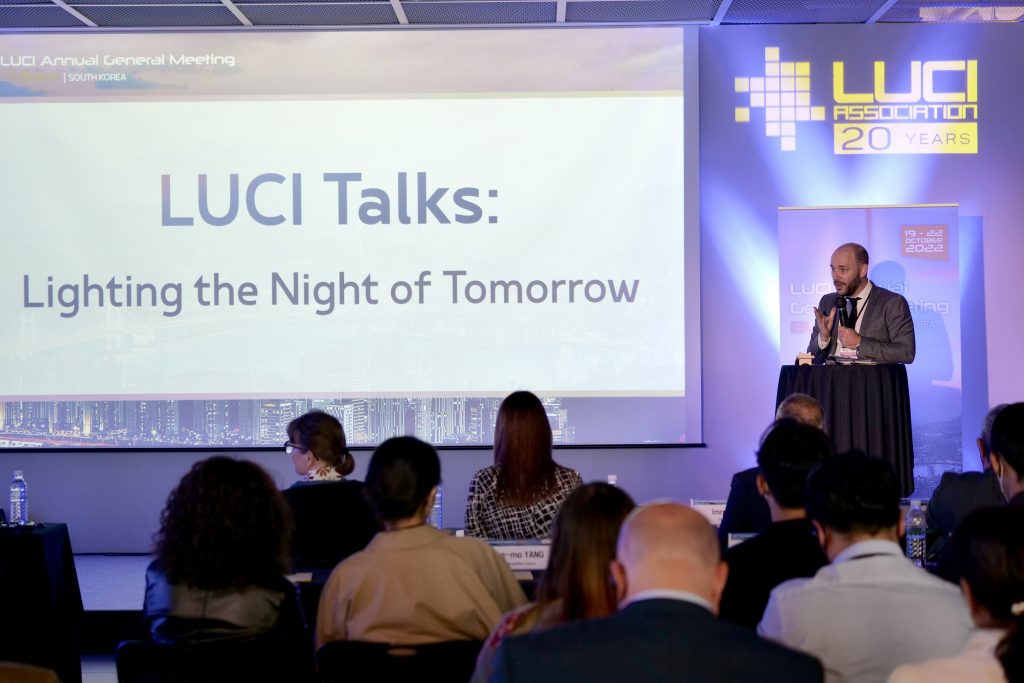
09:45-11:00 | LUCI Talks
This session includes short curated inspirational talks featuring perspectives from the lighting community.
Shedding light on human health: Addressing light pollution’s impact on biological rhythms and well-being
– Virginie Gabel, Founder and CEO, Clock&me; Board Member, Good Light Group
Light is the human body’s most important “time giver”. If the natural light/dark cycle is disturbed (i.e. by light pollution at night), problems will emerge such as desynchrony between internal rhythms, sleep disruption, and suppression of melatonin secretion at night. These effects have been reported to underly several diseases. More recently, diseases such as breast cancer were also linked to light pollution. But not all types of lights have the same impact. In this talk, you will discover how light regulates the human body, what type of light is involved in those changes, the consequences of the use of “wrong light” on health and some inputs on what could be improved in cities.
What’s behind light pollution, and can we do anything about it?
– Christopher Kyba, Post-doctoral researcher, GFZ-Potsdam
During the fall of 2021 and 2023, citizen scientists in the Nachtlichter project counted and classified over 400,000 individual light sources in Germany and other countries. Their data represents a complete lighting inventory for a total area of over 20 square kilometers, in contexts ranging from urban centers to rural areas. This talk will present some preliminary results from the project, shedding light on the frequency of different lighting types (e.g. signs, illuminated shop windows, streetlights) and their temporal properties. It will then reflect on what the results mean for efforts to control light pollution. The talk will conclude with an evidence-based criticism of selected existing norms and regulations, and ideas for how to better balance the lighting needs of humans with the darkness needs of humans and nature.
EU-funded research on light pollution
– Nicola Robinson, Research policy officer, European Commission
Highlights from the recent Future Brief on Light Pollution (produced as part of the EU’s Science for Environment Policy initiative) – multi-scale transdisciplinary approaches to protect the environment from artificial light at night; monitoring ALAN remotely; emerging research issues and gaps. Broader EU policy context on light pollution; past and present EU-funded research on light pollution; future opportunities for EU research and project funding under Horizon Europe and other programmes.
Followed by a moderated joint Q&A.
11:00-12:00 | Open Mic: City changemakers
Moderated by Jasmine van der Pol, Programme Manager, LUCI Association and Elisa Hillgen, Lighting Coordinator, City of Jyväskylä
Over the last years, many cities, lighting designers and researchers have been working on projects and initiatives to protect the nighttime environment – and each of us have started the change in our own way. In this open microphone discussion, the city change-makers who took part in the Light Pollution Working Group will unveil their latest strategies and actions with the common goal to make a difference and inspire others to tackle and prevent light pollution.
12:00-12:10 | Digital journey of public lighting in Flanders
– Jean-Pierre Hollevoet, System Operator, Fluvius
12:10-12:30 | LUCI Announcements
– Mark Burton-Page, General Director, LUCI Association
12:30-14:00 | Lunch & Networking
📍 Terrace of the Salle du Conseil, Hôtel de Ville Montpellier (1 Pl. Georges Frêche, 34000 Montpellier)
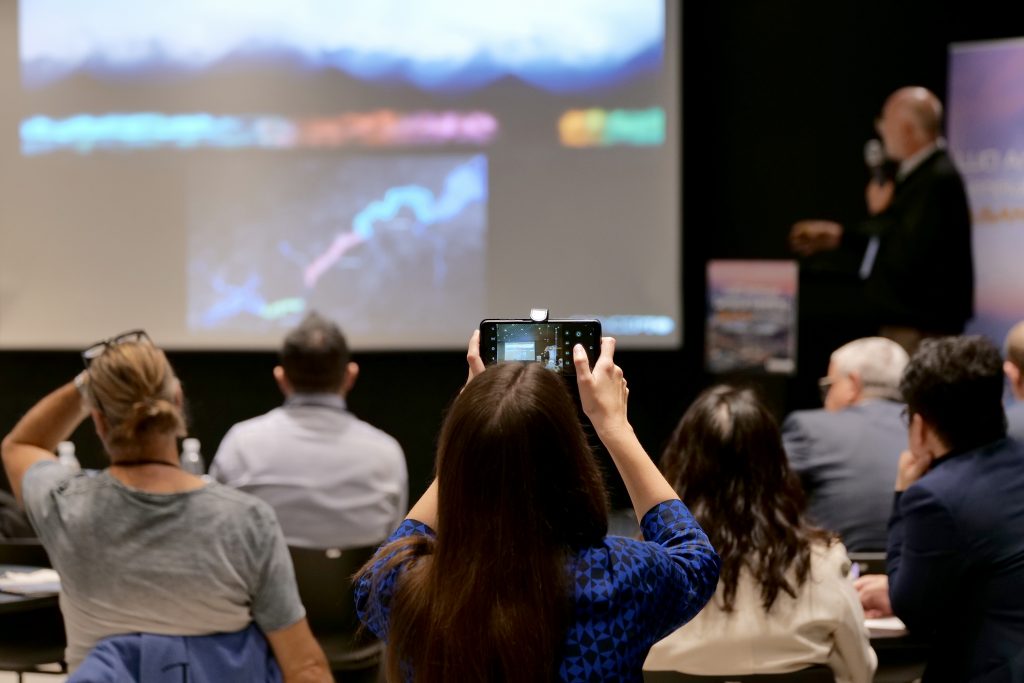
14:00-15:35 | Open Conference Sessions (2 tracks)
📍 Track 1: Salle du Conseil
📍 Track 2: Salle Pierre Mendes France (PMF) – next to Salle du Conseil
The LUCI Open Conference Sessions are the place where LUCI members showcase their cities’ lighting strategies, projects and other initiatives. A Q&A follows each track of presentations.
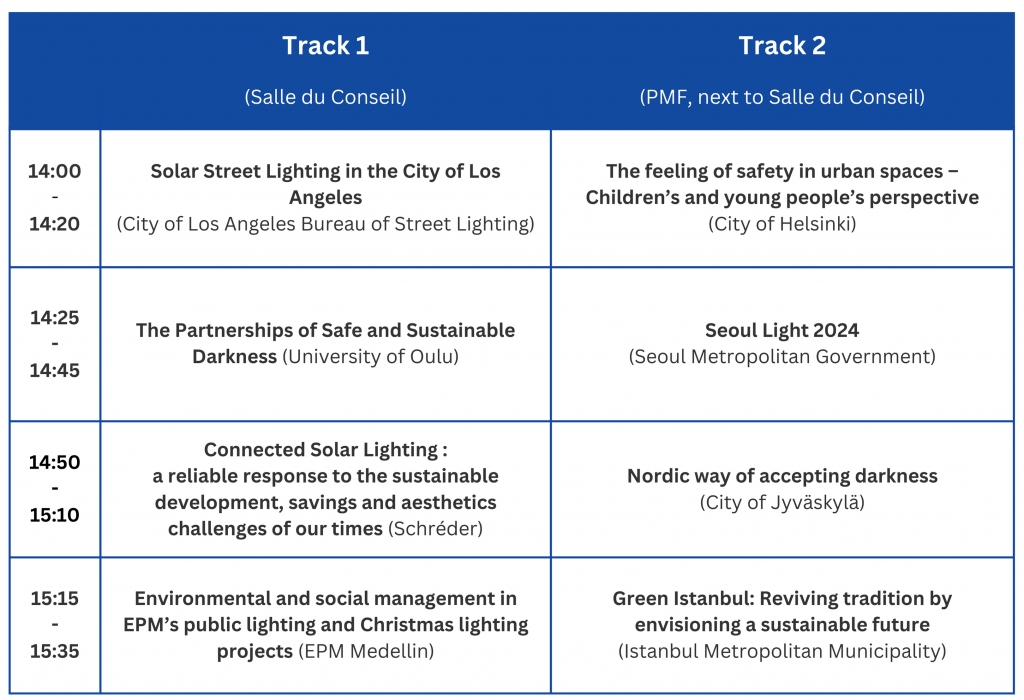
15:35-16:00 | Coffee break
16:00-18:00 | Workshops
For an interactive finale to the conference, participants can choose between the three workshop format options.
1. Role play – Transforming Montpellier’s Mosson district with public lighting (French with translation) [FULL]
📍 Venue: Salle du Conseil
The workshop will be led by Lionel Bessières, Philippe Clavel and Aurélie Cosyn.
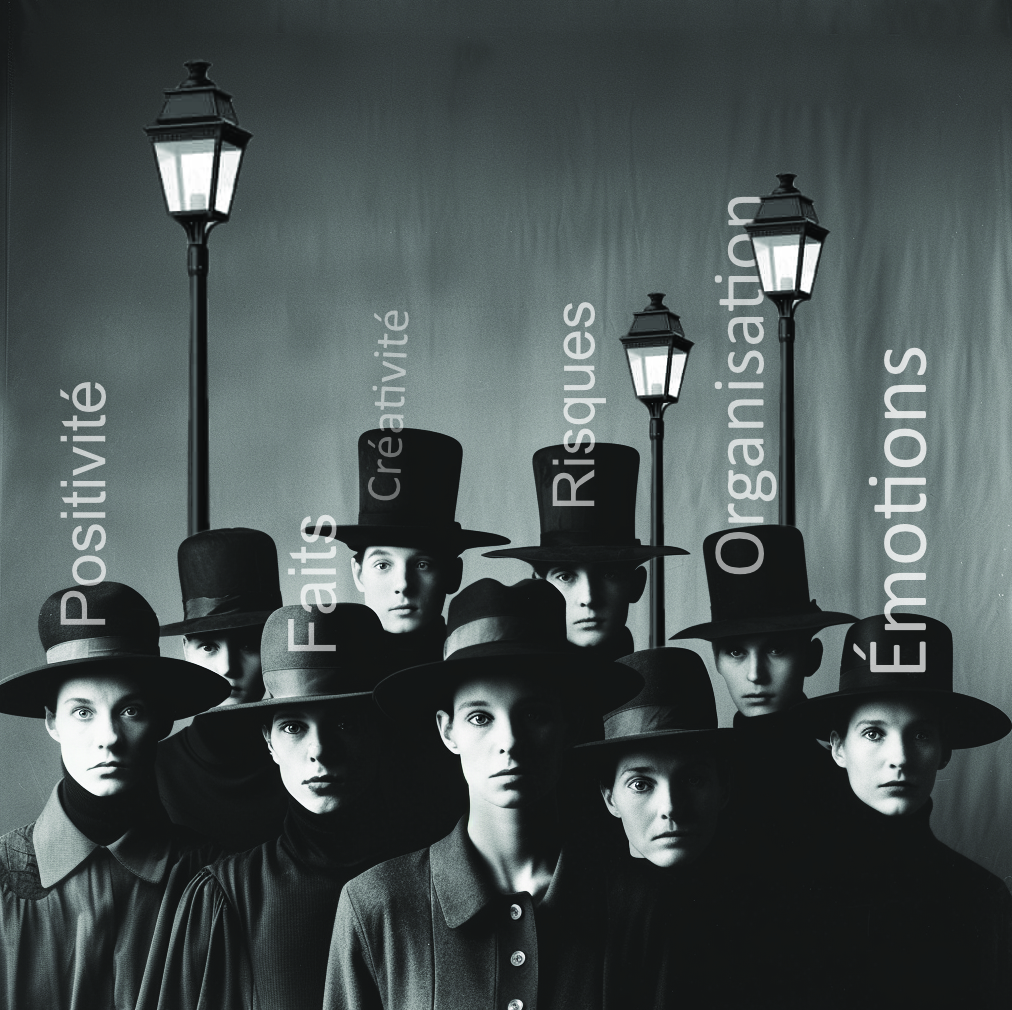
Become someone else and take part in a fictitious public meeting to rethink the lighting in a district of Montpellier! Roleplay during a simulated “public meeting” and respond to a presentation about the impacts of public lighting and first intentions for transforming the Mosson district as your persona of the local population (e.g. a local elderly/retired person, an active sports association member, a young professional etc.). How would they react? What would be their feedback? Come and tell us!
Note: Observers are also welcome if you are not comfortable with roleplaying.
2. Board game – “Switch me off if you can” (French or English) [FULL]
📍 Venue: Coffee area behind the Salle du Conseil HDV
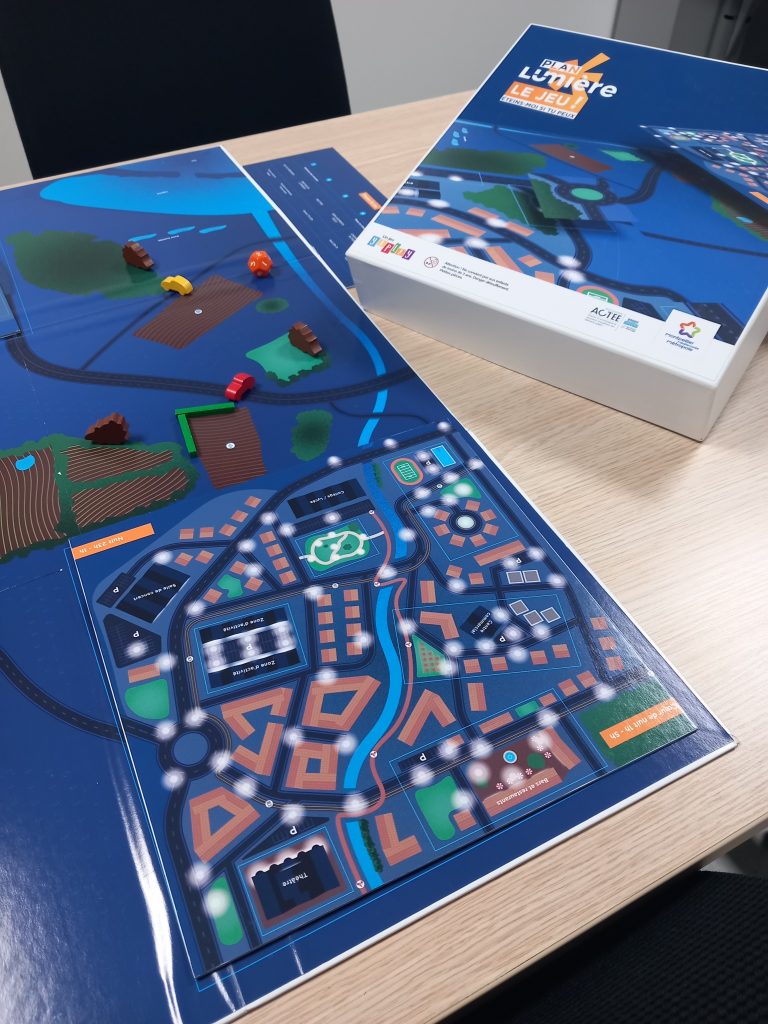
The games will be guided by Damien Guiraudie, Bruno Paternot and Michaël Gerber.
As part of its lighting master plan, Montpellier Métropole created a board game to inform and raise awareness among the elected representatives of the 31 communes in the metropolis about the diversity of problems and issues surrounding public lighting, with a view to combating light pollution. The board game “Switch me off if you can” is a fun way of exploring how decisions can be made in terms of public lighting strategy. “Switch me off if you can” was designed by a company specialised in professional games and produced in France, in very small numbers, by an institute adapted for people with disabilities.
Please specify in the registration form which language you wish to play the game in.
Note: Each game takes about 1 hour.
3. Narrative writing – Noctines, new nocturnal narratives (English)
The workshop will be led by Nicolas Houel, Founder, L’Observatoire de la nuit.
📍 Venue: Room PMF in HDV (next to Salle du Conseil)
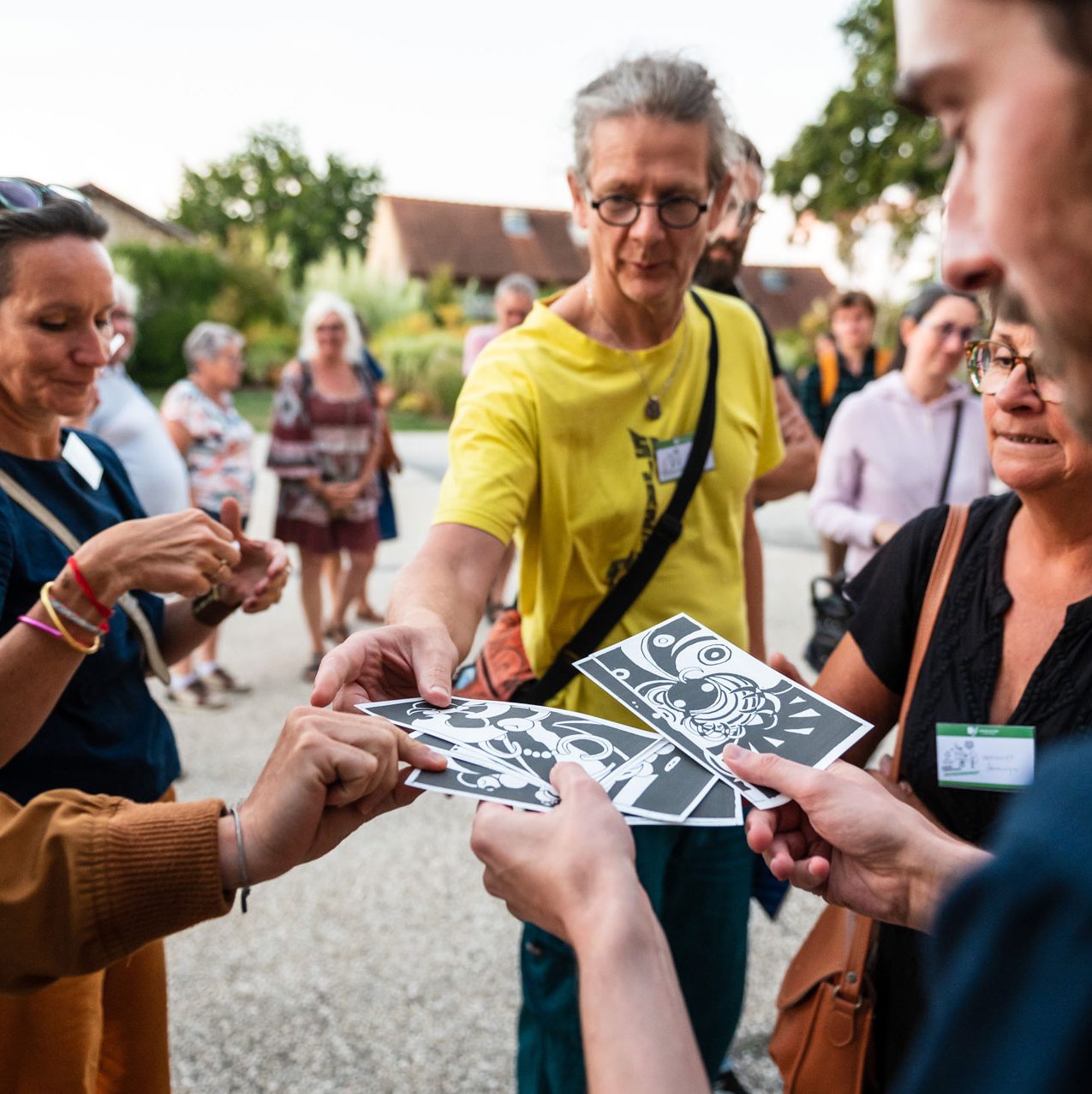
The fabric and uses of the nocturnal city are built around stories that are centuries old. Some real, some imaginary, some lived, some heard. Stories shaped by awe and wonder, fear and upheaval. At a time of changing lighting conditions, Noctines is an invitation to collaborate in writing the nocturnal narratives of generations to come. Narratives that reflect the territories and their inhabitants, where lighting is centered on uses, where light and darkness are balanced, and where fears are, at last, defused. In this workshop, Nicolas Houel invites participants to write such narratives and imagine together the city at night of tomorrow. To wrap up the session, innovative tools such as AI and digital twins will be used to show how the balance between research, sociology and digital can help in the design of the nocturnal ambiances for the next generations.
18:00-20:00 | Free time
20:00-22:00 | Closing dinner
📍Venue: Maison des relations internationales Nelson Mandela (14 Dsc en Barrat, 34000 Montpellier)
Saturday 27 April 2024
Optional programme
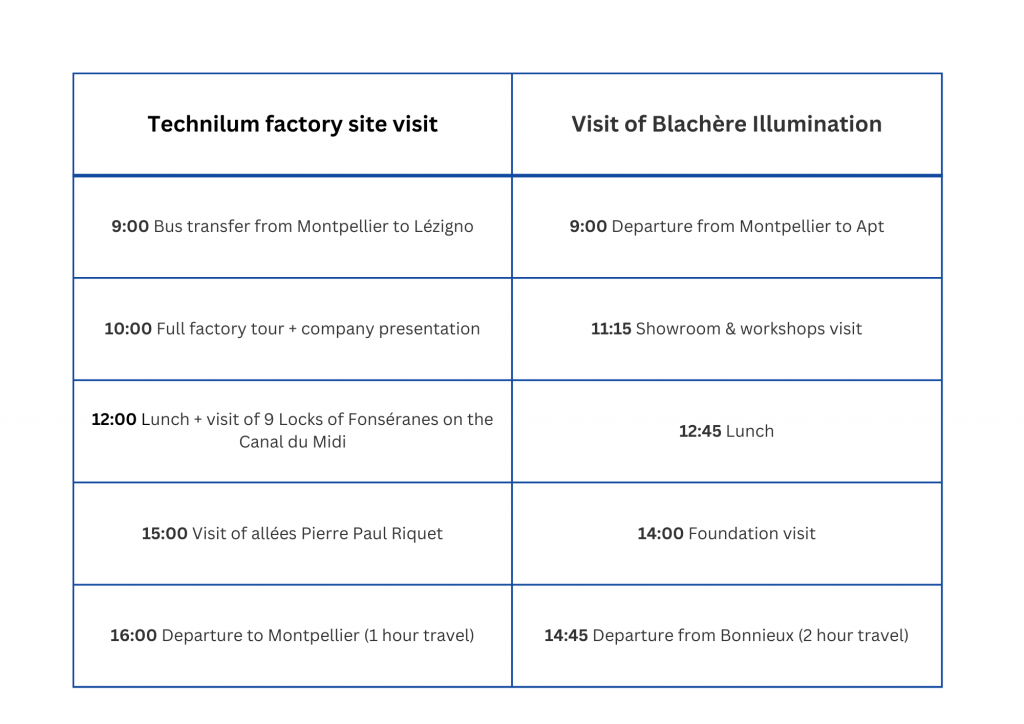
©Montpellier Méditerranée Métropole ©Jiri Halttunen ©Ruskin Hartley ©Busan Metropolitan City ©Quartiers lumières ©Bruno Daversin ©La TeleScop ©LUCI ©Jean-Baptiste Guerlesquin, Ad-Lucem ©Céline Villa ©Technilum ©Blachere Illumination

